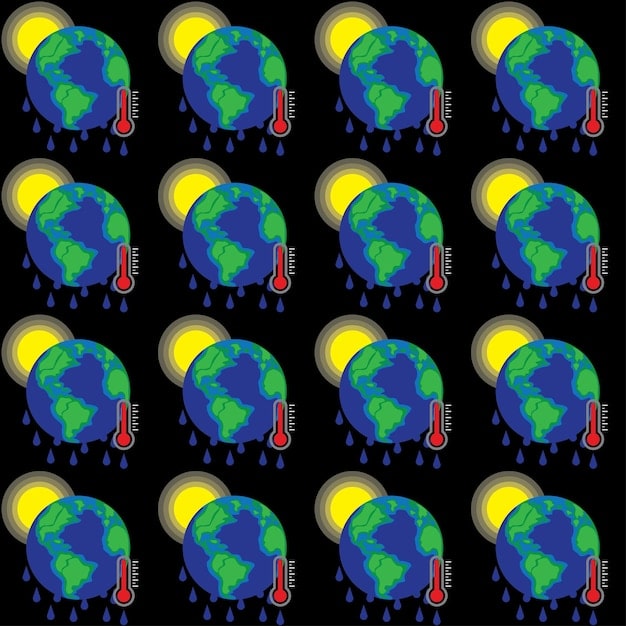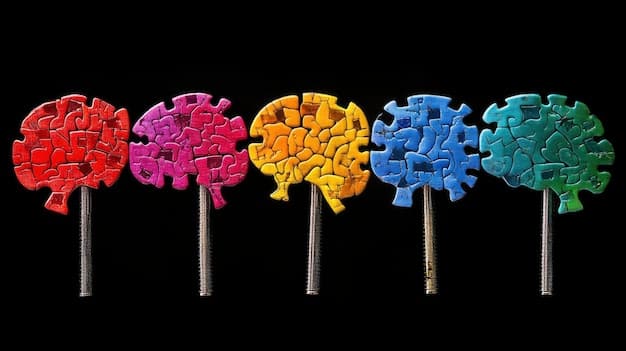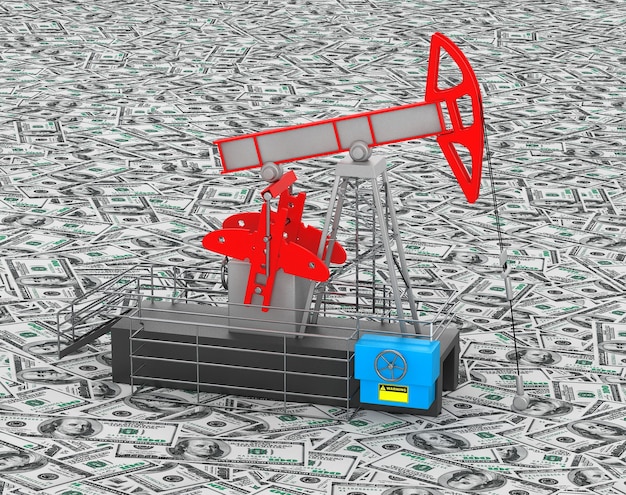Understanding Climate Change Denial: Science, Psychology, and Society

Climate change denial is a complex phenomenon driven by psychological factors like cognitive dissonance and motivated reasoning, coupled with sociological influences such as political polarization and vested interests, hindering the acceptance of scientific consensus.
The reality of climate change, backed by overwhelming scientific evidence, faces persistent denial. The Science of Climate Change Denial: Understanding the Psychological and Sociological Factors unveils the reasons behind this resistance, exploring the intricate interplay of individual psychology and broader societal influences.
The Landscape of Climate Change Denial
Climate change denial isn’t simply a matter of lacking information. It’s a multifaceted issue rooted in deeply held beliefs, values, and social affiliations. Understanding this landscape is critical to addressing the problem effectively.
This denial manifests in various forms, ranging from outright rejection of climate science to minimizing the severity of its impacts or questioning the effectiveness of proposed solutions. These positions are often bolstered by misinformation and strategically disseminated by groups with vested interests.
Forms of Denial
Climate change denial takes several distinct forms, each with its own nuances and motivations:
- Trend Denial: Rejecting the existence of global warming, asserting there is no significant change in the climate.
- Attribution Denial: Acknowledging climate change but attributing it to natural causes rather than human activities.
- Impact Denial: Accepting that climate change is happening but downplaying its potentially devastating consequences.
- Solution Denial: Conceding the problem but arguing against proposed solutions, often claiming they are too expensive or ineffective.
These different forms of denial highlight the complexity of the issue and the need for tailored communication strategies to address each perspective.
In conclusion, understanding the various forms and motivations behind climate change denial is essential for effective communication and policy-making, paving the way for more constructive dialogue and action.
Psychological Drivers of Denial
Human psychology plays a significant role in climate change denial. Several cognitive biases and psychological defense mechanisms contribute to individuals’ resistance to accepting the reality of the climate crisis.
Understanding these psychological drivers is crucial for developing effective communication strategies that can overcome resistance and promote climate action. By addressing these psychological barriers, it becomes possible to foster greater acceptance of climate science.

Cognitive Dissonance
Cognitive dissonance occurs when individuals hold conflicting beliefs or values. Accepting the reality of climate change may clash with existing lifestyles or political ideologies, creating psychological discomfort.
To alleviate this dissonance, individuals may deny or downplay the evidence of climate change. This allows them to maintain consistency between their beliefs and behaviors, even in the face of contradictory information.
Motivated Reasoning
Motivated reasoning involves processing information in a way that confirms pre-existing beliefs, regardless of the evidence. People are more likely to accept information that aligns with their values and reject information that challenges them.
This bias can lead individuals to selectively seek out information that supports their denialist views while ignoring or dismissing scientific evidence that contradicts them.
In conclusion, understanding how cognitive dissonance and motivated reasoning influence climate change denial is essential for crafting effective communication strategies that foster greater acceptance of the scientific evidence.
Sociological Influences on Climate Change Beliefs
While psychological factors play a crucial role, sociological influences significantly shape climate change beliefs. Social networks, cultural norms, and political affiliations all contribute to the acceptance or rejection of climate science.
Exploring these sociological influences provides valuable insights into the collective dynamics that fuel climate change denial. By understanding these forces, more effective strategies for promoting climate action can be developed.
Political Polarization
Climate change has become a highly polarized issue in many societies, with political affiliation serving as a strong predictor of climate change beliefs. This polarization often stems from conflicting values and ideologies.
In politically polarized environments, individuals may align their climate change beliefs with their political identity, regardless of their understanding of the science. This can lead to echo chambers where denialist views are reinforced.
Role of Media
The media plays a pivotal role in shaping public perceptions of climate change. Biased reporting, dissemination of misinformation, and the amplification of fringe viewpoints can contribute to climate change denial.
Additionally, the media’s tendency to present climate change as a debate, even though there is overwhelming scientific consensus, can create a false sense of uncertainty, fueling denial and inaction.
- Balanced vs. Biased Reporting
- The Spread of Misinformation
- Media’s Role in Creating Uncertainty
In conclusion, analyzing the influence of political polarization and the media on climate change beliefs is crucial for fostering a more informed public discourse and countering the spread of misinformation.
The Role of Vested Interests
Economic interests and lobbying by certain industries play a significant role in driving climate change denial. Companies heavily invested in fossil fuels often engage in campaigns to undermine climate science and obstruct climate action.
Understanding these vested interests is essential for holding them accountable and promoting transparent policy-making. Addressing the influence of these entities is critical to achieving meaningful progress on climate change.
Funding of Denial Campaigns
Fossil fuel companies and related industries have been known to financially support think tanks, lobbying groups, and media outlets that promote climate change denial. This funding enables the dissemination of misinformation and the obstruction of climate policies.
These campaigns often involve downplaying the severity of climate change, questioning the scientific consensus, and promoting false solutions. The ultimate goal is to protect vested interests and maintain the status quo.

Lobbying Efforts
Lobbying efforts by vested interests can significantly influence policy decisions related to climate change. These efforts often involve direct engagement with policymakers, campaign contributions, and public relations campaigns.
The aim is to weaken or block legislation aimed at reducing greenhouse gas emissions and promoting renewable energy. This lobbying can create significant obstacles to achieving climate targets.
In conclusion, exposing and addressing the role of vested interests in driving climate change denial is crucial for promoting evidence-based policies and fostering a more sustainable future.
Overcoming Climate Change Denial
Addressing climate change denial requires a multifaceted approach that targets both the psychological and sociological factors that contribute to it. Effective communication, education, and policy interventions are essential for overcoming resistance and fostering collective action.
By employing strategies that address the root causes of denial, it is possible to promote greater acceptance of climate science and create a more sustainable and resilient future.
Effective Communication Strategies
Effective communication is crucial for overcoming climate change denial. Strategies that focus on building trust, using relatable language, and framing climate change in terms of shared values can be particularly effective.
- Emphasizing Shared Values
- Using Relatable Language
- Building Trust
Avoiding technical jargon and presenting information in a clear and concise manner can help to bridge the gap between scientists and the public. Highlighting the tangible benefits of climate action, such as cleaner air and healthier communities, can also motivate individuals to take action.
Promoting Science Education
Improving science education is essential for equipping individuals with the critical thinking skills needed to evaluate information and resist misinformation. Programs that focus on climate science, data analysis, and the scientific method can help to foster a more scientifically literate public.
Providing educators with the resources and training they need to teach climate science effectively is also crucial. By promoting science education, we can empower individuals to make informed decisions about climate change and support evidence-based policies.
In conclusion, by employing effective communication strategies and promoting science education, it is possible to overcome climate change denial and foster a more informed and engaged public.
Building a Climate-Conscious Society
Creating a climate-conscious society involves fostering a culture of environmental responsibility and collective action. This requires engaging individuals, communities, and institutions in addressing the complex challenges of climate change.
Building a climate-conscious society depends on nurturing sustainable practices, enhancing environmental awareness, and promoting collaborative solutions that transcend individual and political divisions.
Fostering Environmental Responsibility
Fostering environmental responsibility calls for cultivating a deep appreciation for the natural world and encouraging sustainable lifestyles. Actions that reduce environmental impact can make a significant difference.
- Promoting Sustainable Consumption: Encouraging conscious purchasing habits and reducing waste.
- Supporting Renewable Energy: Switching to green energy sources reduces greenhouse gas emissions and dependence on fossil fuels.
- Enhancing Environmental Awareness: Raising awareness through educational initiatives, community events, and media campaigns highlights the importance of preserving the planet.
Engaging Communities and Institutions
Engaging communities and institutions involves creating partnerships that drive climate action. These collaborations can bring about meaningful change at various levels.
Effective institutional policies and community initiatives amplify individual efforts, creating significant environmental benefits and fostering a sense of mutual responsibility. Support for community projects and policies helps integrate sustainability into daily life.
In summary, building a climate-conscious society involves cultivating environmental responsibility and engaging communities and institutions in collaborative climate action.
| Key Point | Brief Description |
|---|---|
| 🧠 Psychological Factors | Cognitive dissonance and motivated reasoning drive denial. |
| 🌍 Sociological Influences | Political polarization and media shape beliefs. |
| 💰 Vested Interests | Industries fund denial campaigns and lobbying. |
| 📢 Overcoming Denial | Effective communication and education are essential. |
Frequently Asked Questions
▼
Climate change denial is the rejection of the scientific consensus on climate change, despite overwhelming evidence that the Earth’s climate is warming and that human activities are the primary cause.
▼
The psychological factors include cognitive dissonance, where people reject information that conflicts with their beliefs, and motivated reasoning, where individuals interpret information in ways that align with their pre-existing views.
▼
Sociological factors involve political polarization, where climate change becomes linked to political identity, and media influence, which can disseminate misinformation or create a false sense of uncertainty around the issue.
▼
Vested interests, particularly fossil fuel companies, often fund campaigns to undermine climate science and obstruct climate action in order to protect their economic interests and maintain the status quo.
▼
Effective strategies include using clear, relatable language, emphasizing shared values, promoting science education to foster critical thinking, and engaging communities and institutions to drive climate action collectively.
Conclusion
Understanding the science of climate change denial requires examining the intertwined psychological and sociological factors that fuel resistance to scientific evidence. Addressing these factors through effective communication, education, and policy interventions is essential for fostering a climate-conscious society and promoting a sustainable future.





